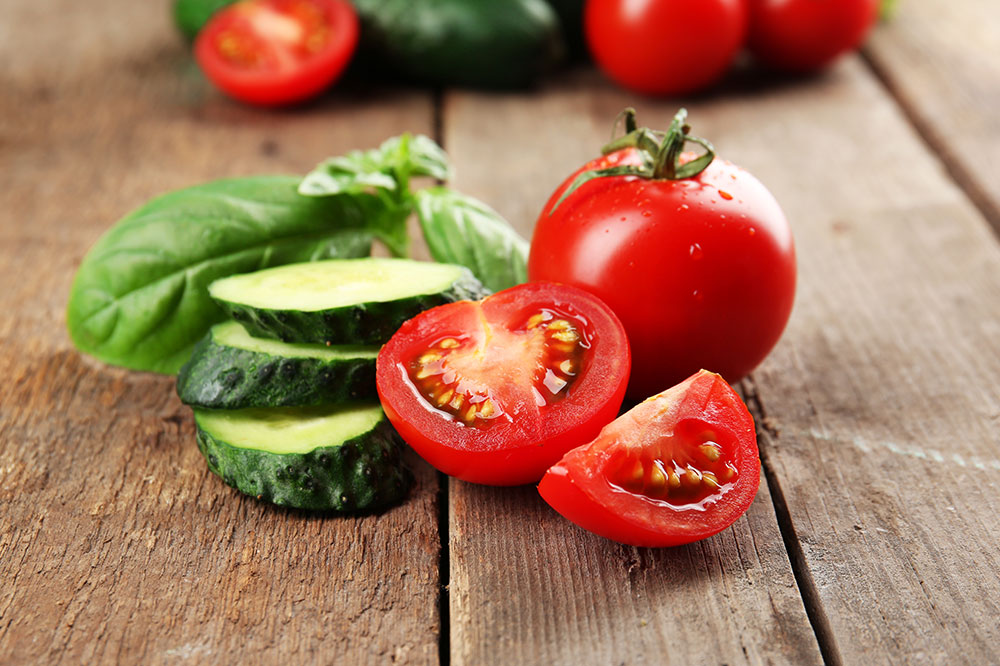Comprehensive Nutritional Strategies for Easing COPD Symptoms through Rejuvenating Foods
This comprehensive guide offers essential nutritional strategies for managing COPD symptoms effectively through rejuvenating foods. It emphasizes nutrient-rich diets, hydration, healthy fats, and vitamins to enhance energy, respiratory function, and overall health for COPD patients. Tailoring diet plans with these tips can significantly improve quality of life and disease management.

Comprehensive Nutritional Strategies for Easing COPD Symptoms through Rejuvenating Foods
Chronic obstructive pulmonary disease (COPD) is a complex lung condition that includes diseases such as chronic bronchitis and emphysema, impacting millions worldwide. Managing COPD effectively involves a combination of medical treatment and lifestyle modifications, with nutrition playing a pivotal role. Proper dietary habits can help alleviate symptoms, boost energy levels, and improve overall health outcomes for patients dealing with COPD. Given the common issue of unintended weight loss among COPD patients, emphasizing nutrient-dense, high-calorie foods in small, manageable portions is crucial for maintaining strength and enhancing quality of life.
This comprehensive guide explores the most beneficial foods that can support respiratory health, increase vitality, and strengthen the immune system. Tailoring your diet to include specific nutrient-rich foods can significantly impact the disease's progression and your daily comfort.
nutritional Foods to Boost Energy and Support Lung Function
Many individuals with COPD experience fatigue, making it essential to select foods that provide sustained energy without overtaxing the lungs. High-calorie foods that are nutrient-dense can help meet caloric requirements while avoiding unnecessary sugar intake, which can lead to blood sugar spikes and energy crashes. Focus on incorporating a variety of proteins, healthy fats, and fiber-rich foods into your diet to promote overall wellness and respiratory efficiency.
Calorie-Dense and Protein-Powered Foods
In COPD management, energy levels can fluctuate due to decreased lung function. To mitigate fatigue, it is advisable to consume foods that are packed with calories and proteins. Instead of relying on simple carbohydrates, which provide quick energy but are often lacking in nutritional value, opt for high-quality protein sources like lean cuts of beef, skinless poultry, baked fish such as salmon and cod, and plant-based options like tofu and tempeh. These foods not only help sustain energy but also support muscle maintenance, especially important for COPD patients experiencing muscle wasting.
Starting the Day with Nutritious Breakfasts
Breakfast is the most important meal to set a positive tone for the day, particularly for those managing COPD. Oatmeal is an excellent choice because it offers a rich supply of dietary fiber, iron, calcium, and vitamin A, all essential for maintaining energy and supporting immune health. Enhancing oatmeal with a splash of milk improves taste and provides additional nutrients like vitamin D and calcium. Including a sprinkle of nuts or seeds can further boost calorie content and supply healthy fats, promoting better lung health and overall vitality.
Dairy and Calcium Sources
Adding moderate amounts of cheese or yogurt to your meals can significantly increase caloric intake while supplying calcium vital for bone strength, a crucial consideration since COPD treatments, particularly corticosteroids, can weaken bones over time. Cheese can be incorporated into rice dishes, vegetable stir-fries, or atop baked potatoes. Dairy products also provide vitamin D, which works synergistically with calcium to promote bone mineralization and reduce fracture risk.
Fiber-Rich Foods for Digestive and Overall Health
Nutrition for COPD patients extends beyond respiratory support; digestive health is equally important. Foods rich in dietary fiber, such as lentil soups, cooked dry beans, whole-grain bread, fresh fruits, and vegetables, support healthy digestion and help prevent constipation. Improved gut health can enhance nutrient absorption, further contributing to overall health and energy levels.
Incorporating Heart-Healthy Fats
The inclusion of healthy fats particularly omega-3 fatty acids, is vital for reducing inflammation and supporting lung and heart health. Foods like eggs prepared with omega-3 enriched yolks, a handful of mixed nuts, creamy avocados, and fatty fish such as salmon, sardines, mackerel, and albacore tuna should be staples in the diet. Olive oil is another excellent source of monounsaturated fats, which can be drizzled over salads or used in cooking to add flavor and health benefits.
Zinc and Immune Support
Zinc plays an important role in immune function and tissue repair, both crucial for COPD management. Legumes such as lentils, chickpeas, and dry peas are rich in zinc and can be integrated into various dishes. Consuming these foods regularly may help reduce the severity of infections and symptoms associated with COPD, ultimately improving quality of life.
Hydration and Mucus Management
Staying well-hydrated is critical for managing COPD symptoms. Proper fluid intake helps thin mucus, making it easier to clear from the lungs and reducing coughing and respiratory discomfort. Non-caffeinated beverages like water, herbal teas, and broths should be prioritized. Avoiding caffeinated drinks is recommended because they can promote dehydration, which complicates mucus clearance.
Milk and Calcium-Rich Beverages
Consuming milk or fortified plant-based alternatives regularly can support weight gain, enhance bone density, and provide vital nutrients such as vitamin D and calcium. These nutrients are instrumental in preventing osteoporosis, a common concern among COPD patients, especially those on corticosteroids.
Snack and Supplement Options for Extra Calories
To counteract weight loss and support energy needs, include calorie-dense snacks like nuts, nut butters, trail mix, and high-calorie protein bars. When choosing snacks, opt for options low in saturated fats and added sugars. Consulting with a healthcare provider or dietitian ensures these foods align with your overall health plan and do not interfere with any medications or treatments.
Vitamin D and Sun Exposure
Vitamin D deficiency is common among COPD patients and can exacerbate their symptoms. In addition to dietary sources like fatty fish—mackerel, salmon, tuna—regular safe sun exposure helps the body produce vitamin D naturally. Supplemental vitamin D might be recommended by your healthcare professional if dietary and sunlight sources are insufficient.
Conclusion: A Holistic Approach to COPD Nutrition
Effective management of COPD extends beyond medications to include a well-rounded nutritional strategy. Incorporating calorie-rich, nutrient-dense foods, maintaining hydration, and ensuring adequate intake of vitamins and minerals can make a significant difference in symptom control and quality of life. Each patient's needs are unique, so personalized dietary plans developed alongside healthcare providers can maximize health benefits. Remember, small dietary adjustments can have profound impacts on energy levels, respiratory health, and overall well-being.




